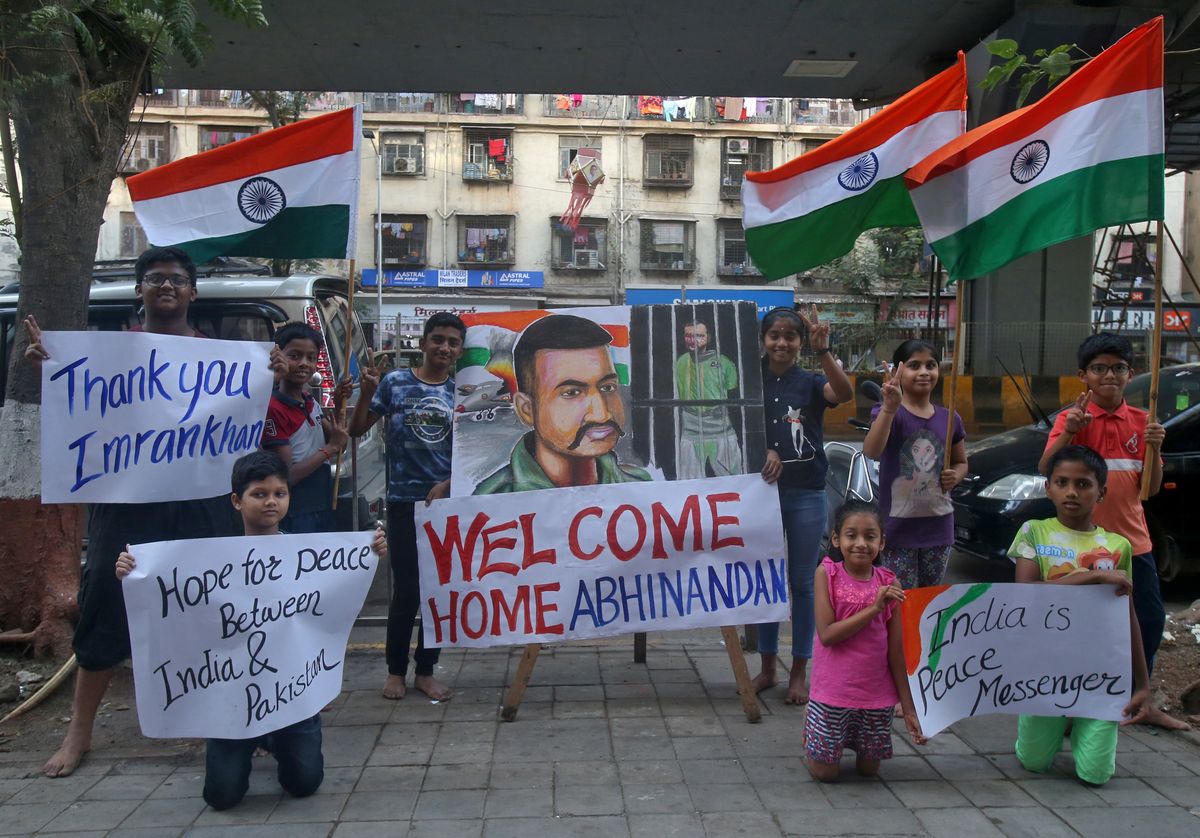Pakistan's Prime Minister Imran Khan made a dramatic plea this week to ease tensions with his country's neighbor and rival: "I ask India: with the weapons you have and the weapons we have, can we really afford such a miscalculation? If this escalates, things will no longer be in my control or in Modi's."
His fear is justified. This confrontation between nuclear-armed neighbors began with a terrorist attack that killed 40 Indian soldiers in disputed Kashmir, advanced with India's launch of the first cross-border airstrikes since 1971, and escalated when Pakistan claimed to have shot down two Indian fighter planes and held captive an Indian pilot.
Khan has released the Indian pilot, but this story isn't over. It's an election year in India, and Prime Minister Narendra Modi can't afford to appear weak-willed. Pakistan's government, its military, and the various militant groups that operate on its territory don't share the same goals, and there are still tens of thousands of troops mobilized on both sides of the Indian-Pakistani border.
For a deeper dive, watch this video : Pakistan vs India by the numbers


















